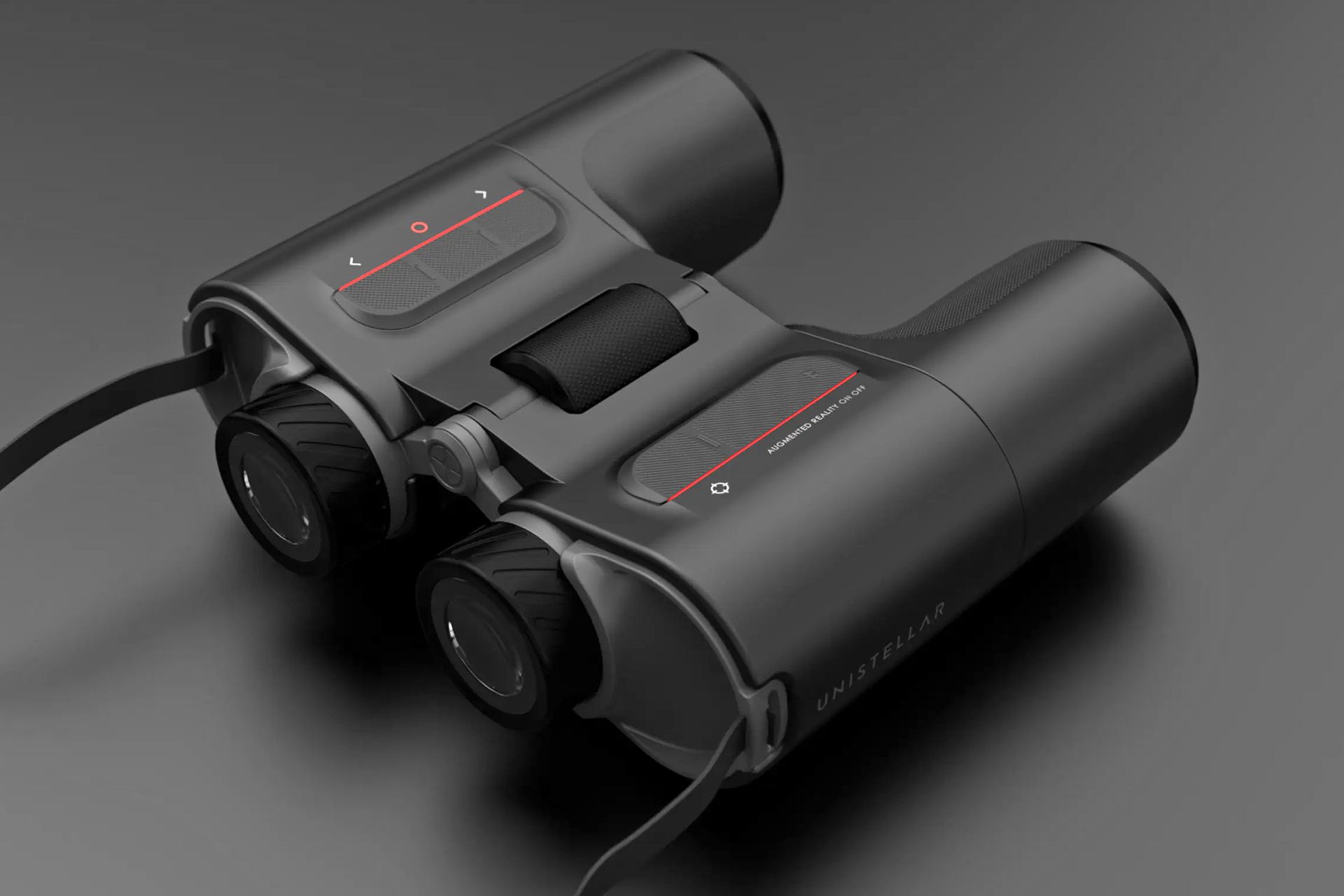Unistellar is crowdfunding its new Envision binoculars that use AR to overlay information about what you’re looking at.
Share this story

Unistellar’s new Envision binoculars bring smart functionality similar to Swarovski’s Optik AX Visio binoculars announced earlier this year. But instead of recognizing birds and animals, the Envision will use AR to identify and label over a million unique landmarks including mountains and trails and more than 200,000 objects in the night sky.
The French company launched a decade ago with smart telescopes that automate the process of finding and photographing objects like stars and planets. It’s now squeezing that technology into a pair of binoculars featuring 50mm lenses from Nikon upgraded with an augmented reality projection system that overlays contextual information about what’s being viewed in real time.
It’s innovative, but Unistellar will be relying on a crowdfunding campaign to help create its first prototypes next year, and delivery to backers isn’t expected until late 2025.
The Envision binoculars connect to a smartphone over Bluetooth and use that device’s GPS and other sensors to determine where a user is located. With the help of an app, the smartphone also feeds the binoculars info from an online database featuring “millions of cartographic items, including mountains, hills, trails, landmarks, water sources, stars, galaxies, and other celestial objects.” For those headed to remote locations with limited connectivity, they’ll need to download offline maps and data ahead of time.
Battery life is rated at five hours of use or “1,000 binocular engagements per charge.” But when the battery dies, the Envision will continue to function as regular binoculars.

In addition to serving as a handheld tour guide, Unistellar is promising another handy feature: one person can lock onto something they’re looking at and then pass the binoculars to someone else, who will see directional indicators guiding them to that same target.
Unistellar is bringing the Envision binoculars to consumers through a crowdfunded Kickstarter campaign that’s still over $1 million shy of its funding goal. Early bird backers can preorder a pair for $699, which is a significant discount over the expected $1,199 retail pricing (and much cheaper than the $4,799 Swarovski smart binoculars), but delivery for the earliest backers isn’t expected until November 2025.
There’s always a risk when backing a crowdfunded product, even one from a company like Unistellar that’s already delivered several successful devices. But the company isn’t expecting to have its first industrial prototypes of the Envision binoculars until January 2025. Despite a solid track record so far, it might be a good idea to wait until next year to see how these pan out.

